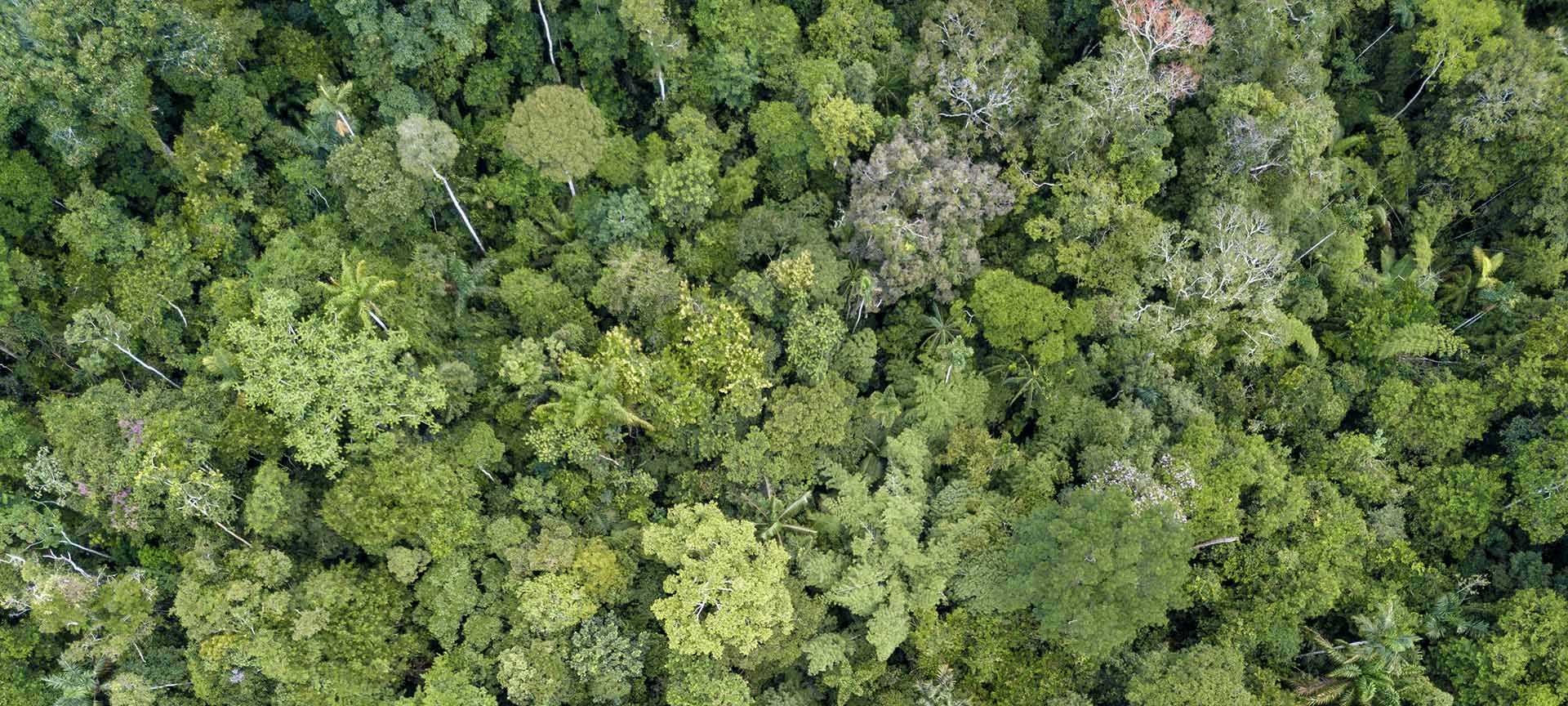There’s an established saying in some sustainability circles that you can ‘only manage what you can measure’. This phrase felt particularly relevant when we attended a panel discussion at the Oxford Marmalade Festival to support one of our long-term clients: Global Canopy. Presenting at Unlocking data to end deforestation and human rights abuses, Global Canopy were joined by representatives from Tony’s Chocolonely and Farmz2U to talk about the importance of data in the fight to reduce deforestation and its associated impacts.
We’re all aware of the pace of deforestation, particularly in the tropics. Yet we’re often bombarded by declarations and marketing from companies about the commitments they’re making. It was sobering to spend a few hours drilling down into the detail of what those commitments actually mean and where the rubber hits the road in terms of action. Currently, 63% of companies that have made deforestation commitments cannot show evidence of working toward them, and voluntary action alone is failing to close the gap. In the current push for deregulation as a response to stagnant economies in the Global North, further regulation can feel like an uphill battle. But there are some points of progress – not least the EU deforestation legislation. However, this is demand-side regulation and needs complementary policy, as domestic markets (such as Brazilian beef consumption) matter greatly in the wider deforestation picture.
As our understanding of the connectivity of natural systems grows, it’s an apt time to pause and reflect on how deforestation affects us all. Forests are critical to climate stability, economies, biodiversity, and ecosystem services such as water and protection from extreme events. Aligned with this is the impact on people – the removal of forests for agriculture is often accompanied by human rights abuses. We know, for example, that there is 50% less deforestation on Indigenous lands, proving that traditional stewardship works. However, only 1% of companies involved with at least one commodity publish a commitment to all human rights – a woeful indicator of where we currently stand. Transparency in commodity supply chains remains a critical objective.
This is where organisations like Global Canopy come in – providing data aggregation and analysis to highlight issues and encourage progress. Over 20 years, the organisation has developed initiatives such as TRASE to make the most of existing data to map supply chains. Openness and transparency have genuine power, and leadership comes from embracing both. It was encouraging to hear Global Canopy share plans to start including human rights and other key social metrics in their work. Bringing these data sets together will help drive deeper connections and action on linked issues.
Belinda from Tony’s spoke about how the company is founded on the principle of impact and actively seeks to disrupt poor practices within commodities. Cocoa is the second biggest driver of deforestation from a UK consumption perspective, making their work all the more important. Tony’s views environmental impact and human rights abuses as two sides of the same coin. Because traditional sustainability doesn’t address the full supply chain, they’ve developed a five-pronged approach: traceability, price, a minimum five-year partnership model, working with cooperatives, and quality and productivity. Key to this is ensuring all five areas function together. As has been shown time and again, even well-meaning action can have unintended negative consequences if approached in isolation.
Analysis of their own data has shown that risks are often concentrated – for instance, Brazilian soy exports are linked to municipalities with high levels of deforestation. Tony’s approach shifts the burden of proof and the cost of disclosure away from smallholder farmers. Pricing (including futures) is key here – and the belief is that companies, not farmers, should bear the burden of regulation. Tony’s pays farmers a per-tonne additional fee to collect data, incentivising good data capture and creating a fairer system. Belinda also mentioned that Tony’s is one of the few companies to report child labour issues in their supply chain – and while this has attracted attention, their long-term focus on transparency is helping to reduce prevalence over time. Crucially, all measurements are independently audited. When asked how their leadership is influencing the wider market, Belinda highlighted their ‘mission allies’ approach – working with other producers and retailers to drive industry-wide change through openness and collaboration. In my career, I’ve often said, ‘let’s compete on funding but not on impact’ – and it seems Tony’s is taking a similar and effective path.
Aisha from Farmz2U shared insights on their work in the informal space between farmers and buyers. She pointed out that many handoffs occur before a commodity reaches a port of exit – creating multiple opportunities for abuse. Her organisation works to create more visibility in this grey area. She noted that the classic corporate response is to shorten supply chains as a method of control, but this can result in social exclusion and negative impacts on farming communities. Data ownership is another key issue – it needs to be more openly shared, but its value should belong to farmers, who should be compensated for data mapping, just as Tony’s is doing.
After a stimulating discussion with real points of inspiration, I’m left with the strong feeling that leadership in sustainability remains critical. Shifting power isn’t easy – it requires new thinking, fresh approaches, and the courage to pursue a more open-minded path in markets where the drivers of deforestation are long established and hard to shift. I was reminded of a conversation in a previous role with the sustainability director of a household brand. I was dreading seeing him after we’d downgraded his disclosure score. To my surprise, he was pleased – saying, ‘Now the board will ask me to present solutions to get us back to an A – solutions I haven’t been able to get on their agenda until now’.
Leadership for change must be a bit delusional and disruptive – but it also needs to be in the room with those you want to change, not throwing rocks from the outside. This session was a great example of organisations getting that balance right.

James Sawyer
James joined Oxford HR in 2023 as principal consultant. In 2024 James has lead on searches for senior roles at Fauna and Flora, Durrell Wildlife Conservation Trust, The Elders, Global Canopy, Bonsucro, UN IFAD, Water Witness and WeForest.
He has over 25 years of experience in the non-profit sector focused in conservation, environment, animal welfare and emergencies. He has operated in more than 40 countries, delivering policy change at national and international levels as well as significant service delivery to beneficiaries and changes to protected area status. James has led on organisational level change and has facilitated high level strategy development for several organisations.



